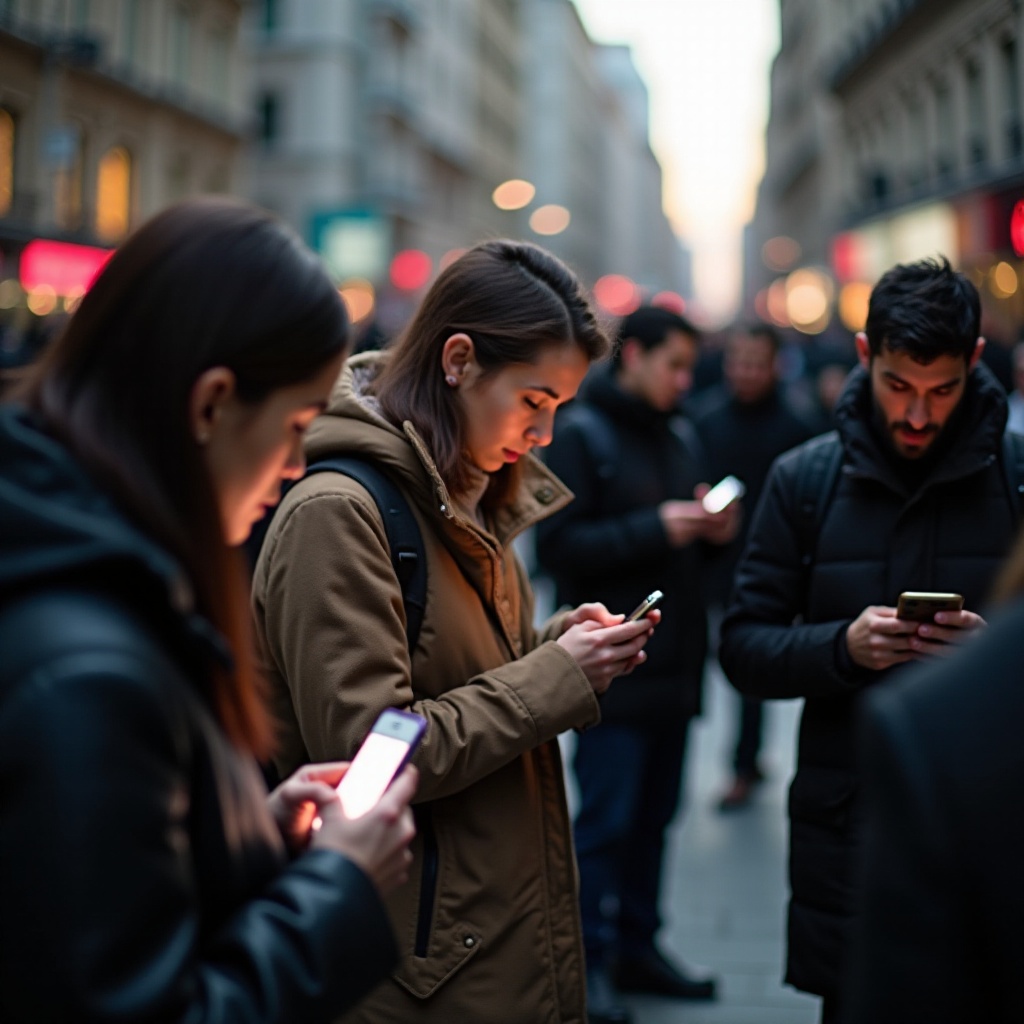Introduction
Nicholas Carr’s observations on the pervasive presence of smartphones highlight their significant impact on our lives and minds. These devices have become omnipresent in our daily routines, subtly yet profoundly altering our behavior and cognitive abilities.

The Overarching Influence of Smartphones
Carr delves into the transformative ways smartphones reshape our habits and thinking. Far beyond tools for communication, smartphones are integral components of our lifestyles. Constant notifications and an endless stream of content condition us to prioritize short-term pleasure over long-term goals and deep thinking.
This shift affects our interactions, pursuit of knowledge, and professional lives. Smartphones weave themselves into every aspect, dictating daily schedules and shaping our reactions to the world around us.

The Psychological Impact
The psychological impact of smartphones is significant, as Carr discusses. Continuous stimulation from these devices reduces attention spans, making it hard to engage fully with tasks. Distractions from phones lead to cognitive shallowness, where deep, uninterrupted thought processes are frequently disrupted.
This results in shallow information processing and quicker mental fatigue, diminishing our ability to tackle complex problems. Compounding this issue is social media, where likes and shares provide instant gratification, reducing the need for meaningful offline connections that foster genuine happiness and mental wellness.
Case Studies and Recent Research
Supporting Carr’s perspective, research shows that constant smartphone usage impedes memory formation. The vast zettabytes of available information disrupt the human need for contemplation and mindfulness.
For instance, research from the University of Texas revealed that the mere presence of a smartphone, even when not in use, reduces cognitive capacity. Participants performed poorly on focus-required tasks with a nearby phone, indicating distraction from mere smartphone proximity.
Case studies offer chilling insights:
1. Digital Detox: Retreats show cognitive and mental health improvements after brief periods without smartphones.
2. Professional Environments: Limiting smartphone use among employees enhances productivity and work quality.
These examples underscore Carr’s argument about the hijacking of our cognitive functions by smartphones.
Social Implications and Mental Health
Smartphone overuse has far-reaching social implications. More time spent on phones means less real-life interaction. Carr stresses that meaningful in-person connections are key for well-being, often sacrificed for social media’s fleeting satisfaction.
Excessive smartphone use correlates with mental health issues like anxiety and depression. Constant comparison to curated online personas can erode self-esteem and foster inadequacy feelings. Additionally, smartphone notifications disrupt sleep patterns, preventing crucial rest and recovery, leading to poor mental health cycles and increased screen time.

Ways to Regain Control and Reclaim Your Brain
Carr provides solutions to regain control over our minds from smartphones. Here are practical tips:
- Establish Boundaries: Set and adhere to specific smartphone use times. Avoid phones during meals and before bed.
- Digital Detox: Regularly break from all devices. Engage in non-screen activities.
- Uninstall Unnecessary Apps: Remove time-consuming apps, focusing only on essential tools.
- Mindfulness Practices: Engage in meditation and mindfulness to re-train your brain for focus and present moment engagement.
- Physical Activities: Replace screen time with walking, sports, or hobbies engaging both mind and body.
Conclusion
Nicholas Carr’s insights explain how smartphones hijack our minds. By understanding these impacts and implementing strategies to mitigate them, we can reclaim our cognitive abilities and enhance mental well-being.
Frequently Asked Questions
How do smartphones affect our cognitive abilities?
Smartphones reduce attention spans, create mental fatigue, and interrupt deep thinking. The constant information flow leads to shallow processing and diminished problem-solving skills.
What are some solutions to reduce smartphone dependency?
Solutions include establishing smartphone use boundaries, engaging in digital detoxes, uninstalling unnecessary apps, practicing mindfulness, and participating in physical activities.
How does social media contribute to smartphone addiction?
Social media encourages screen time through instant gratification from likes and shares. It fosters constant comparison to others, impacting self-esteem and overall mental health.
